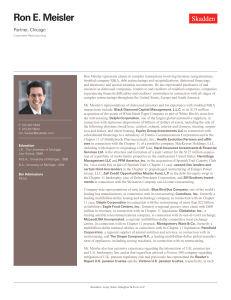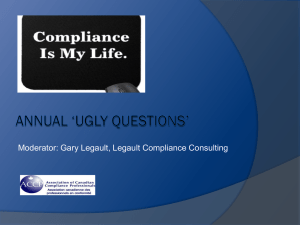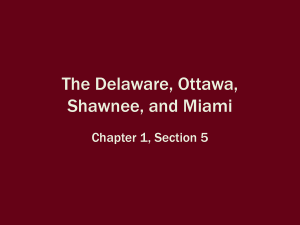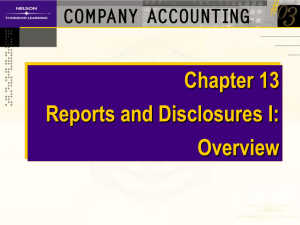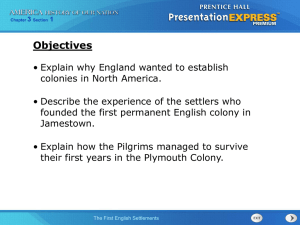Are disclosure-based settlements
advertisement
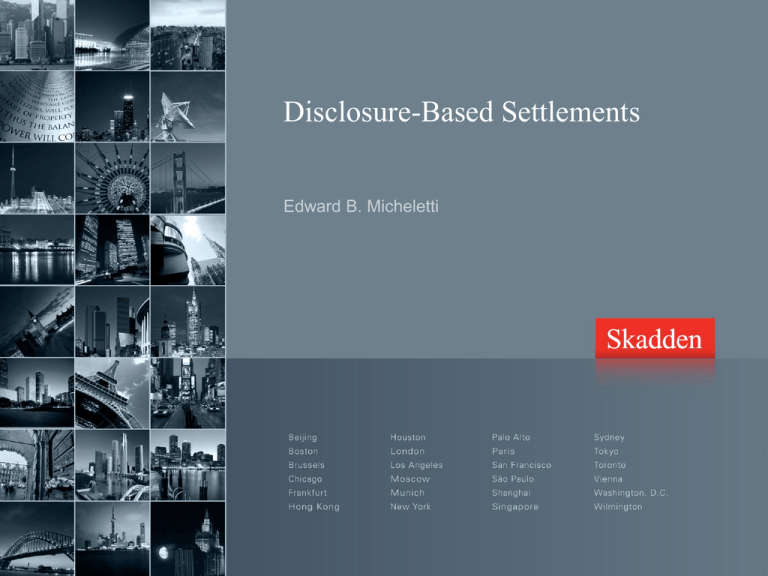
Disclosure-Based Settlements Edward B. Micheletti Disclosure-Based Settlements • Issue: Are disclosure-based settlements “dead”? • Certain Delaware decisions have recently questioned the validity of disclosure (or other therapeutic) based settlements. – In re Compellent Techs., Inc. S’holder Litig., C.A. No. 6084-VCL, Trans. at 7 (Del. Ch. Jan. 13, 2011) (noting Court will take into account law firm’s history of settling based on disclosures when appointing lead counsel, noting refusal to settle based on disclosures “shows you’re in there fighting and you’re not simply taking the easy disclosure settlement and walking away with your four to five hundred thousand”) – In re Revlon, Inc. S’holders Litig., C.A. No. 4578-VCL (Del. Ch. Mar. 16, 2010) (replacing lead plaintiff counsel, and commenting on proposed settlement based on therapeutic changes to merger agreement by noting that “[f]requent filers like the firms in this case have perfected this technique as a basis for settling cases challenging third-party deals”) – Scully v. Nighthawk Radiology Holdings Inc., C.A. No. 5890-VCL, Trans. at 19 (Del. Ch. Dec. 17, 2010) (“historically, plaintiffs’ lawyers have been subjected to criticism for the practice of suing on the announcement of every deal, then agreeing to global disclosure statements. I’ve criticized you all for it. My colleagues have criticized you all for it.”) – In re Monogram Biosciences, Inc. S’holders Litig., C.A. No. 4703-CC, Trans. at 7 (Del. Ch. Jan. 29, 2010) (noting “there is a sort of continuing pattern of people just challenging deals, basically raising sort of increasingly marginal disclosure claims….Honestly, it’s not the kind of litigation that is particularly edifying. It doesn’t seem to be inspired, as much as it should be, or perhaps at all, by the economic motivations of stockholders or the class. And I just note that concern.”) Recent Developments In Delaware Corporate Law |2 Skadden, Arps, Slate, Meagher & Flom LLP Disclosure-Based Settlements Observations • This is not the first time the Delaware Courts have expressed a view about “quick” settlements that do not offer non-therapeutic benefits to the absent class members. See, e.g., In re Cox Commc’ns, Inc. S’holders Litig., 897 A.2d 604 (Del. Ch. 2005) • Many disclosure based (and other therapeutic) settlements have been approved over the past several years. – The settlements that are not approved or have been severely chastised are the ones that get the most attention. Recent Developments In Delaware Corporate Law |3 Skadden, Arps, Slate, Meagher & Flom LLP Disclosure-Based Settlements Thesis • If a deal can be enjoined based on disclosures, then disclosures should be a valid basis for a settlement, under the appropriate circumstances. Recent Developments In Delaware Corporate Law |4 Skadden, Arps, Slate, Meagher & Flom LLP Disclosure-Based Settlements • In the last twelve months, at least five transactions were enjoined by the Delaware Court of Chancery. • Four of these transactions were enjoined based on disclosures alone. Recent Developments In Delaware Corporate Law |5 Skadden, Arps, Slate, Meagher & Flom LLP Disclosure-Based Injunctions • In re Atheros Commc’ns, Inc. S’holder Litig., No. 6124-VCN (Del. Ch. Mar. 4, 2011): Enjoined based on inadequate disclosures. Court found proxy statement should have disclosed the amount of compensation that Atheros’ financial advisor would receive and that 98% of the fee was contingent. • In re Del Monte Foods Co. S’holders Litig., C.A. No. 6027-VCL (Del. Ch. Feb. 14, 2011): Enjoined based on evidence of financial advisor manipulation of sales process. • Steinhardt v. Howard-Anderson, C.A. No. 5878-VCL (Del. Ch. Jan. 24, 2011): Enjoined based on inadequate disclosures. Found disclosures relating to banker’s valuation analysis to be insufficient. • In re Art Tech. Group, Inc. S’holders Litig., C.A. No. 5955-VCL (Del. Ch. Dec. 20, 2010): Enjoined based on inadequate disclosures. Required supplemental disclosures of fees that target’s financial advisor had been paid by acquirer over past four years, and a description of services provided by financial advisor to acquirer. • Maric Capital Master Fund, Ltd. v. PLATO Learning, Inc., C.A. No. 5402-VCS (Del. Ch. May 13, 2010): Enjoined based on inadequate disclosures. Found disclosures relating to advisor’s DCF analysis were misleading, that additional disclosures regarding projections (i.e., free cash flows) and financial performance were needed, and proxy statement misleadingly described board’s consideration of employment contract negotiations. Recent Developments In Delaware Corporate Law |6 Skadden, Arps, Slate, Meagher & Flom LLP Disclosure-Based Injunctions Common Themes and Trends • Deals are being enjoined based on disclosure claims. • Courts are closely examining banker conduct and bankerrelated disclosures. • Plaintiffs are not as inclined to settle for disclosures, and are opting instead to abandon preliminary injunction applications when supplemental disclosures are made in favor of “interim” fee petitions for “mooted” disclosure claims and a potential damages case. Recent Developments In Delaware Corporate Law |7 Skadden, Arps, Slate, Meagher & Flom LLP Disclosure-Based Injunctions Takeaways • Disclosure-based settlements are not “dead.” They should still happen because deals can get enjoined on disclosures alone. • The Delaware courts remain vigilant in their duty to protect absent class members when reviewing a settlement. (In essence, the Court will consider the benefits being obtained through the settlement, and weigh it against the potential claims that are being released, the defenses against such claims, and the legal and factual circumstances of the case to determine, in its own business judgment, whether the settlement is reasonable.) • Confirmatory discovery plays an important role: process and price claims that are being released should be reasonably explored before presenting the Court with a disclosure-based settlement. Recent Developments In Delaware Corporate Law |8 Skadden, Arps, Slate, Meagher & Flom LLP
